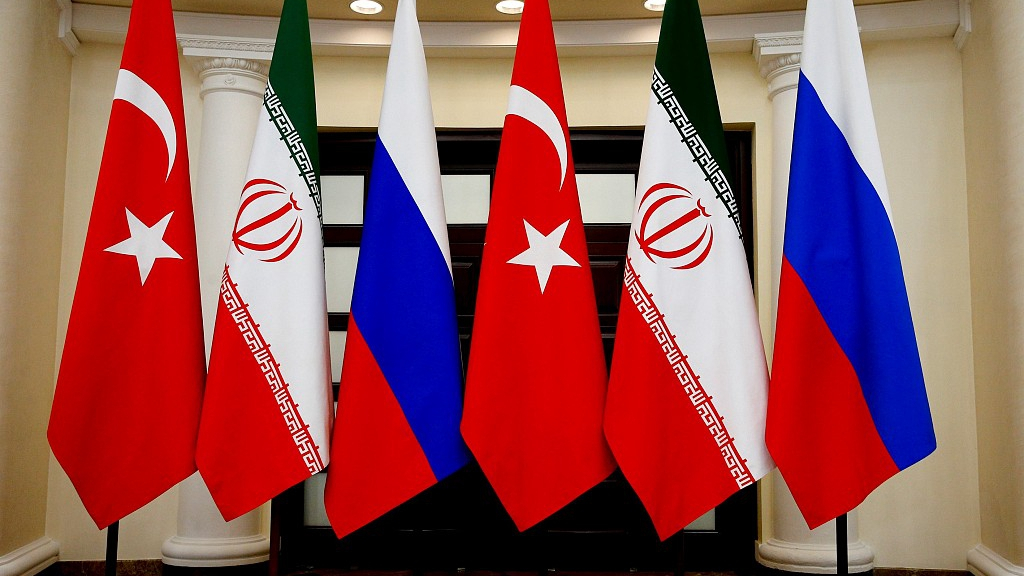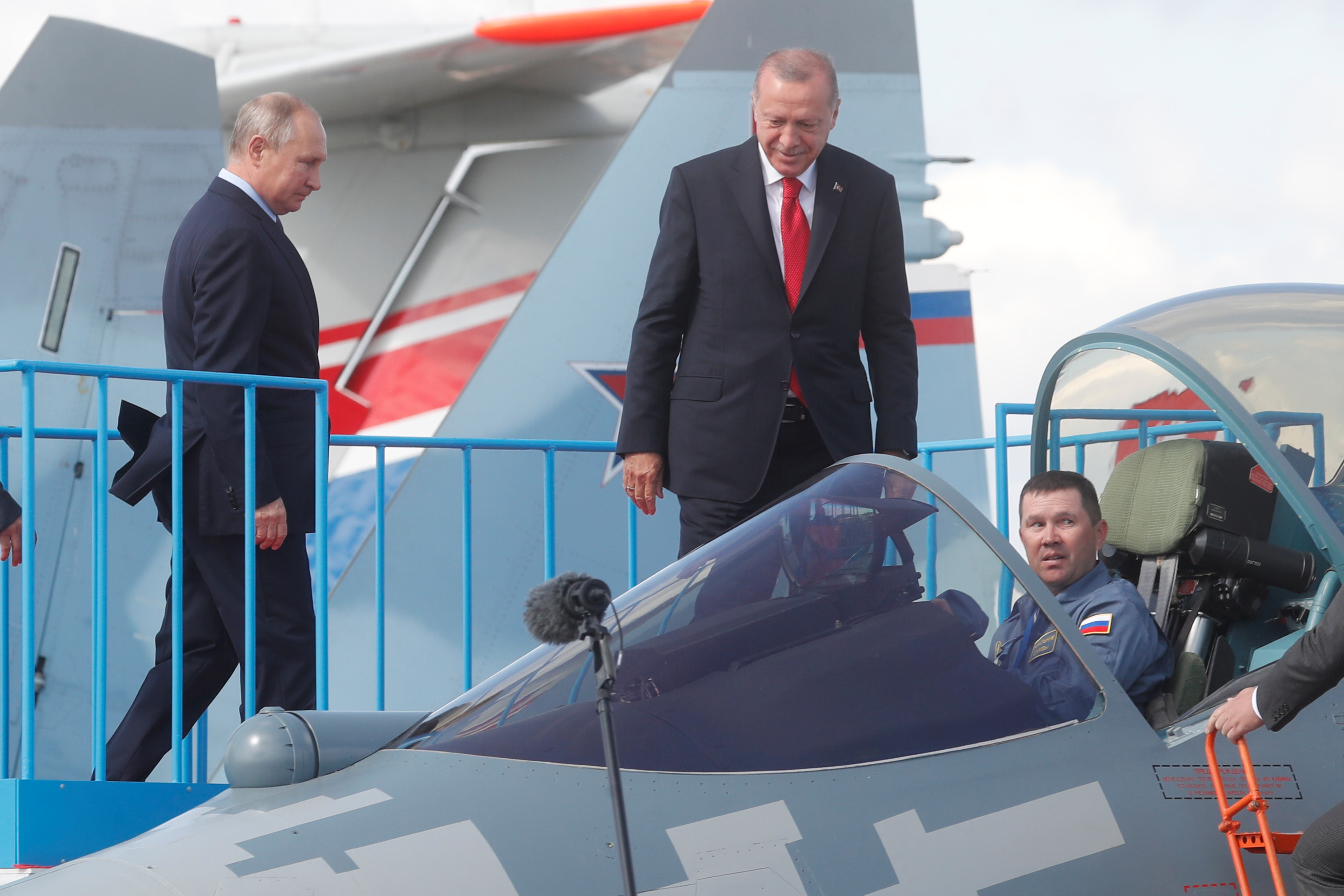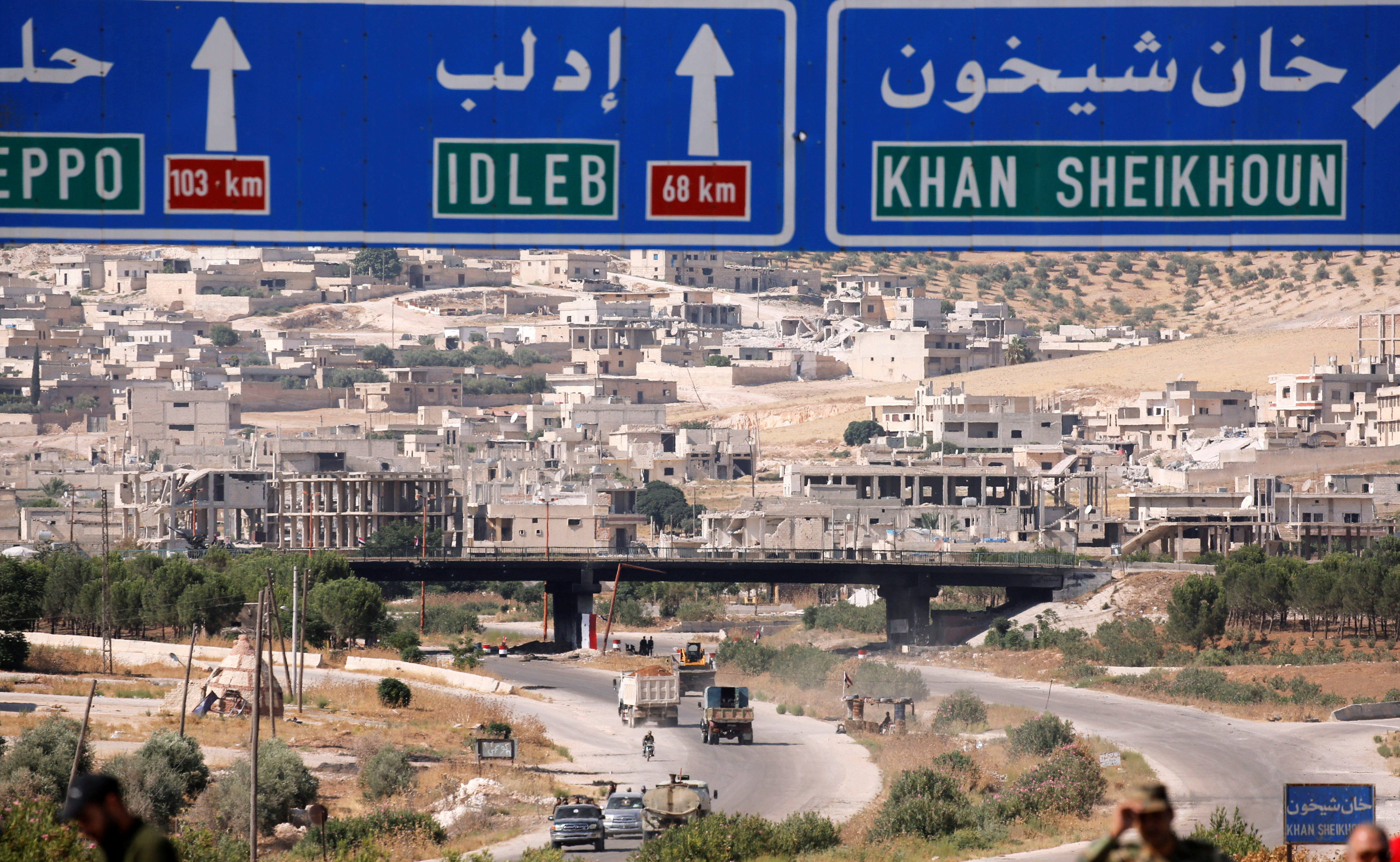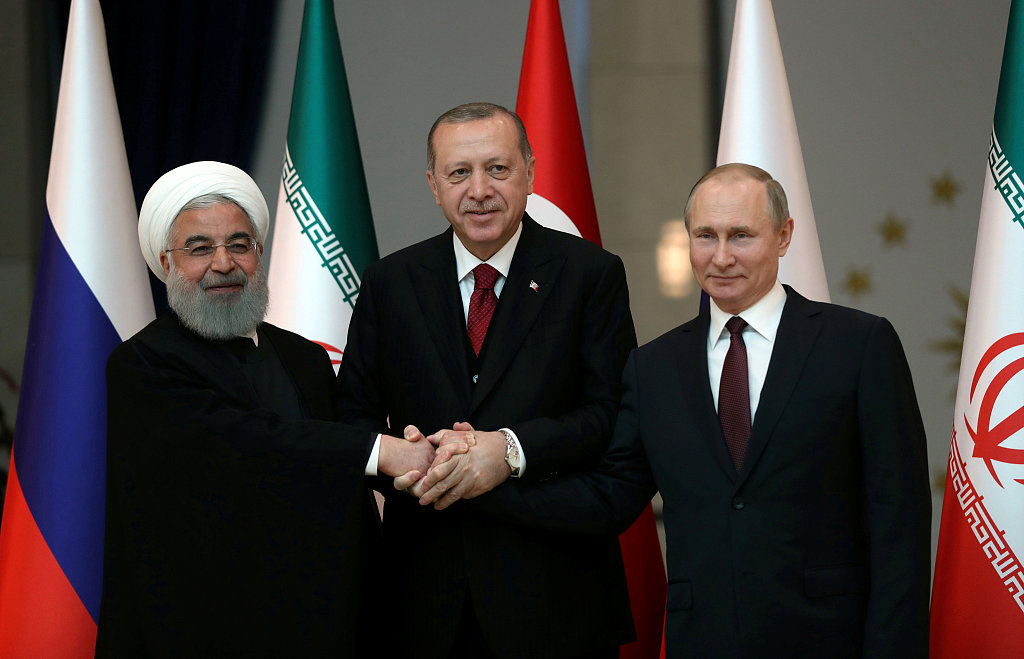

National flags of Turkey, Russia and Iran are pictured during a trilateral summit to discuss progress on Syria between the leaders of three countries on February 14, 2019, in Sochi, Russia. /VCG Photo
Russian President Vladimir Putin, Iranian President Hassan Rouhani and Turkish President Recep Tayyip Erdogan will meet in Ankara on Monday for a fifth round of trilateral talks on Syria.
The trio, however, has been meeting much more frequently over the last couple of years having launched the so-called Astana peace process in January 2017 in Kazakhstan.
Although Turkey and Russia have been on opposing sides of the Syrian conflict – with Moscow backing Syrian President Bashar Al-Assad and Ankara the opposition – the two countries have managed to collaborate and make some progress in reaching a peaceful solution for Syria.

Russian President Vladimir Putin (L) and Turkish President Recep Tayyip Erdogan (C) inspect Sukhoi Su-57 fifth-generation fighter during the MAKS-2019 International Aviation and Space Salon in Zhukovsky outside Moscow, August 27, 2019. /Reuters Photo
The task is not an easy one. The UN estimates over 350,000 people have been killed since the conflict began in 2011 and millions displaced from their homes. Iran too, has been backing Assad.
One of the main issues on the agenda during the meeting in Ankara will no doubt be Idlib, the last main stronghold of the rebels in Syria.
In 2018, Turkey and Russia agreed to create a de-escalation zone in the region, and were successful to a certain point as a huge operation by the Syrian government was prevented. However, Assad is anxious to take back full control of the region and attacks had taken place over several months with a cease-fire declared on August 31. Yet over the last few days, warplanes have been reportedly pounding the area.
The Syrian government and Moscow say they are retaliating in response to attacks by militant group Hayat Tahrir al-Sham which has links to Al-Qaeda. Turkey, according to its agreement with Russia was expected to help separate the rebels from the extremist terrorist groups in Idlib and also assure heavy weapons were evacuated from the region. Ankara has also established 12 observation posts around Idlib as part of its plan with Moscow.

Road direction signs are pictured at the entrance en route to Khan Sheikhoun, Idlib, Syria August 24, 2019. /Reuters Photo
As Idlib gains momentum, thousands of Syrians have reportedly fled the area in recent weeks. This is also a major concern for Turkey, which is already hosting over 3.6 million Syrian refugees.
Erdogan has recently reiterated that the country could not handle another influx of refugees and called on the EU to increase its support. He even suggested Turkey would have to open the borders if it did not receive support – a not so subtle threat for the EU which is already struggling with refugees trying to reach Europe.
Meanwhile, Turkey has other security concerns as well. Ankara wants to clear the Turkish-Syrian border of the YPG Syrian Kurdish militant group. Turkey considers the YPG a terrorist organization as Ankara says it still has connections with the Kurdistan Workers Party PKK which has been deemed a terrorist organization by Turkey, the U.S. and EU.

Presidents Hassan Rouhani of Iran, Tayyip Erdogan of Turkey and Vladimir Putin of Russia pose before their meeting in Ankara, Turkey, April 4, 2018. /VCG Photo
However, the U.S. considers the YPG an ally against ISIL. This has been a major issue of conflict between Turkey and the U.S. Ankara has called for a safe zone to be established along its border with Syria for months now, and has recently begun joint patrols with U.S. forces in the area.
Erdogan has stated he believes the U.S. is stalling on the safe-zone issue. He added that if no progress is made soon, Ankara would be forced to move ahead on its own. Although the U.S. is excluded from talks, Russia's presence is significant for Turkey regarding the safe zone as well. Turkey has said it may carry out an operation in the area and a green light from Russia would be necessary as well.
Bilateral talks between each of the leaders are planned to take place before the trilateral meeting on Monday. Iran and Turkey will likely focus on ways to increase economic cooperation while Erdogan and Putin will also discuss security cooperation. Turkey is still facing a lot of pressure from the U.S. for having purchased an S-400 missile defense system from Russia and is facing potential sanctions from Washington.

Copyright © 2018 CGTN. Beijing ICP prepared NO.16065310-3
Copyright © 2018 CGTN. Beijing ICP prepared NO.16065310-3